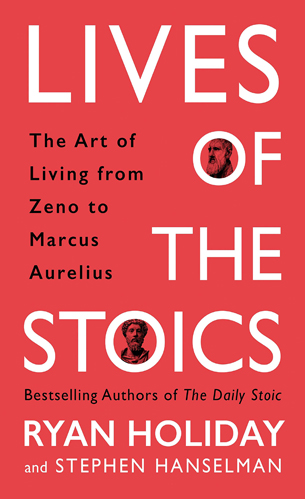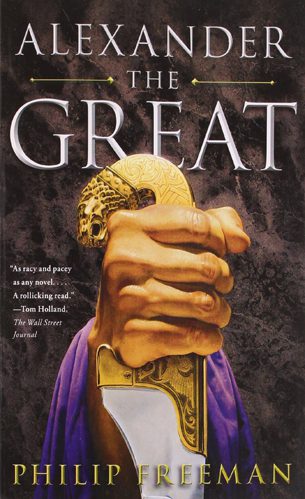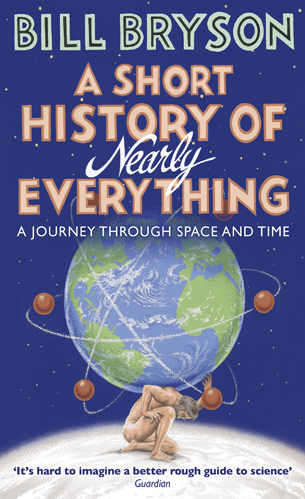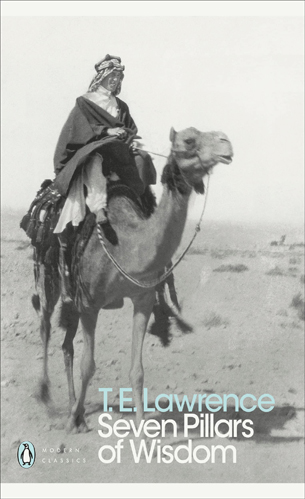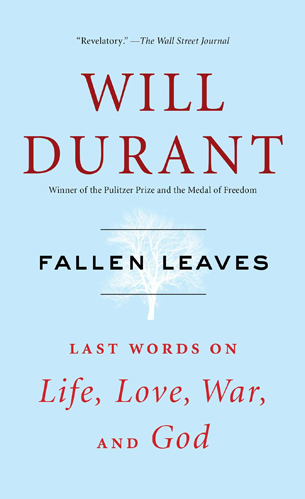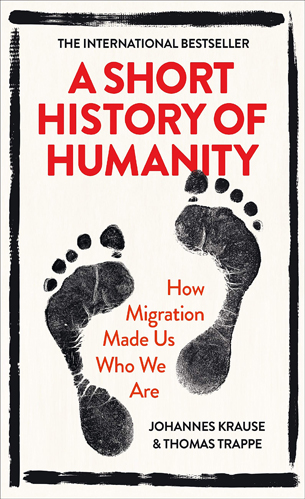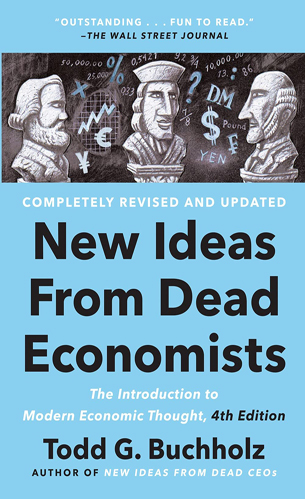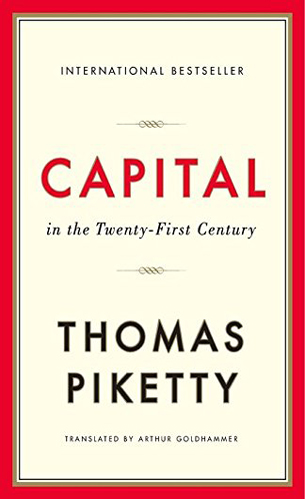Category
- Discounted Books
- English Book Bundles
- University Magazines
- சிறுவர்களுக்கான புத்தகங்கள்
- Children Books
- English Books
- Current Affairs
- Military & Intelligence
- Short Stories
- Fiction
- Poetry
- Environment & Nature
- Science
- Medicine
- Linguistics
- Atheism & Agnosticism
- (Auto)Biography & Memoir
- Business & Management
- Creativity
- Economics
- Education & Research
- Health & Nutrition
- History
- Humor
- Love & Relationships
- Parenting
- Personal Development
- Personal Finance
- Philosophy
- Politics
- War
- Psychology
- Religion & Spirituality
- Society & Culture
- Sports
- Travel & Adventure
- Technology & the Future
- True Crime
- Women Empowerment
- தமிழ் Books
- Book Bundles ( தமிழ் )
- சட்டம்
- இயற்கை
- கட்டுரை
- கணிதம்
- பயணக்குறிப்புகள்
- விவசாயம்
- அரசியல்
- ஆரோக்கியம்
- உளவியல்
- புனைவு
- காதல் மற்றும் உறவு
- சமூகவியல்
- சுயசரிதைகள் மற்றும் நினைவுகள்
- சுயமுன்னேற்றம்
- தத்துவஞானம்
- தொழில்நுட்பம் & எதிர்காலம்
- பொருளாதாரம்
- போர்
- பணம்
- மதம் & ஆன்மீகம்
- வணிகம் & மேலாண்மை
- வரலாறு
- விஞ்ஞானம் & பிரபல அறிவியல்
- விளையாட்டு
- சினிமா
- கவிதைகள்
- குழந்தை வளர்ப்பு
- குற்றம்
- மருத்துவம்
- மொழி
Product categories
- Children Books
- Discounted Books
- English Book Bundles
- English Books
- (Auto)Biography & Memoir
- Atheism & Agnosticism
- Business & Management
- Creativity
- Current Affairs
- Economics
- Education & Research
- Environment & Nature
- Fiction
- Health & Nutrition
- History
- Humor
- Linguistics
- Love & Relationships
- Medicine
- Military & Intelligence
- Parenting
- Personal Development
- Personal Finance
- Philosophy
- Poetry
- Politics
- Psychology
- Religion & Spirituality
- Science
- Short Stories
- Society & Culture
- Sports
- Technology & the Future
- Travel & Adventure
- True Crime
- War
- Women Empowerment
- University Magazines
- சிறுவர்களுக்கான புத்தகங்கள்
- தமிழ் Books
- Book Bundles ( தமிழ் )
- அரசியல்
- ஆரோக்கியம்
- இயற்கை
- உளவியல்
- கட்டுரை
- கணிதம்
- கவிதைகள்
- காதல் மற்றும் உறவு
- குற்றம்
- குழந்தை வளர்ப்பு
- சட்டம்
- சமூகவியல்
- சினிமா
- சுயசரிதைகள் மற்றும் நினைவுகள்
- சுயமுன்னேற்றம்
- தத்துவஞானம்
- தொழில்நுட்பம் & எதிர்காலம்
- பணம்
- பயணக்குறிப்புகள்
- புனைவு
- பொருளாதாரம்
- போர்
- மதம் & ஆன்மீகம்
- மருத்துவம்
- மொழி
- வணிகம் & மேலாண்மை
- வரலாறு
- விஞ்ஞானம் & பிரபல அறிவியல்
- விளையாட்டு
- விவசாயம்
Mossad: The Great Operations of Israel’s Secret Service
Rs. 2,690.00

Michael Bar-Zohar & Nissim Mishal
The Mossad is universally recognized today as the greatest intelligence service in the world. It is also the most enigmatic one, shrouded in a thick veil of secrecy. Many of its fascinating feats are still unknown; most of its heroes remain unnamed. Here, for the first time the veil is lifted by two Israeli authors.
From the famous cases – – the kidnapping of Eichmann from Argentina, the systematic tracking down of those responsible for the Munich Massacre – to lesser-known episodes, shrouded in darkness, this extraordinary book describes the dramatic, largely secret history of the Mossad, and the Israeli intelligence community. It examines the covert operations, the targeted assassinations, the paramilitary operations within and outside Israel. It also reveals the identities of the best Mossad agents and leaders, whose personal stories are interwoven with the great Mossad operations.
Out of stock
Notify me when stock available
About the Authors
- Paperback : 400 pages
Related products
-
Lives of the Stoics: The Art of Living from Zeno to Marcus Aurelius
Rs. 2,990.00or 3 X Rs.996.67 with Read more
Read moreRyan Holiday & Stephen Hanselman
- INSTANT NEW YORK TIMES BESTSELLER
- #1 WALL STREET JOURNAL BESTSELLER
- A New York Times Noteworthy Pick
Stellar work … This illuminating collection of biographies makes great use of Stoic wisdom to demonstrate the tradition’s values ― Publisher’s Weekly
In story after page-turning story, Lives of the Stoics brings ancient philosophers to life. — David Epstein, bestselling author of Range
A great read, particularly for a tough time — Gen. Stanley McChrystal, author of ‘Team of Teams’ and ‘Leaders: Myth and Reality’
There is philosophy for school and philosophy for life. This book is about the lives of men and women who lived their words and shows you how to do the same. — Thomas Tull, founder of Legendary Entertainment
With its emphasis on individual success and perseverance, stoicism is seeing an American renaissance. The authors offer brief instructional biographies of its major ancient practitioners. ― New York Times
“The Stoics were more than just thinkers. They were athletes and generals and emperors and husbands and daughters and parents. This is a wonderful book that shows you the lives behind the philosophers whose words have shaped the world.” –Chris Bosh, 2x NBA Champion
“Ryan Holiday and Stephen Hanselman have achieved something remarkable with Lives of the Stoics. It’s a gift to the many of us today who are searching for inspiration and sense a deep connection with the thought of Zeno, Cato, Seneca, Epictetus, and Marcus Aurelius. At last the story we needed has been told! Indispensable to anyone who genuinely wants to learn about Stoic philosophy.”
–Donald Robertson, author of How to Think Like a Roman Emperor -
Jesus Lived in India: His Unknown Life Before and After the Crucifixion
Rs. 1,690.00or 3 X Rs.563.33 with Read more
Read moreHolger Kersten
Jesus Lived In India is a book by theologian, Holger Kersten, which presents the connection that Jesus had with India. It cites evidence that Jesus lived in India for a large part of his life after the crucifixion and died there at old age. The book asks its readers the question of why Christianity chose to ignore it’s connections with the religions of the east.
Historical sites traced back Jesus to Israel, the Middle East, Afghanistan, and India. According to this book, this had been found out as a result of investigative research. Many startling conclusions have been presented by Holger Kersten.
Some of the allusions made by this book include statements that Jesus followed the ancient Silk Road to India and studied Buddhism there, adopting its tenets in order to become a master of spirituality. This book states that he survived the crucifixion, and after that returned to India where he finally died in Jammu & Kashmir.
Key Features:
- The book is based on research by Holger Kersten.
- It was not well-received by the mainstream scholarship.
- Jesus In India was originally a treatise written by Mirza Ghulam Ahmad.
-
Alexander the Great by Philip Freeman
Rs. 4,290.00or 3 X Rs.1,430.00 with Add to cart
Add to cartPhilip Freeman
- Society of Midland Authors Award Nominee for Biography (2012)
“Freeman tells us about Alexander’s life like a novel—a remarkably interesting novel, to boot.” —Sarah Hann, The Saturday Evening Post
“Fast-paced and dramatic, much like Alexander himself, this is a splendid introduction into one of the most dramatic true stories of history.” -Adrian Goldsworthy, author of Antony and Cleopatra
“As racy and pacey as any novel. Here, in vivid and exciting detail, are all the familiar highlights of Alexander’s career…. Mr. Freeman’s ambition, he tells us in his introduction, was ‘to write a biography of Alexander that is first and foremost a story.’ It is one he splendidly fulfills…. A rollicking read.” -Tom Holland, The Wall Street Journal
“Freeman does not hero worship Alexander, and does not paper over his subject’s many faults. At times, Alexander can seem like an almost mythic figure, but, as Freeman shows, he was all too human.” -Matthew Price, The Boston Globe
“Lean, learned, and marked by good judgment on every page, Alexander the Great is also a roaring good yarn. Philip Freeman has the eye of someone who has walked in Alexander’s footsteps, and he writes with grace and wisdom.” -Barry Strauss, author of The Spartacus War and professor of history, Cornell University
“The author’s love for his subject infuses this footnote-free narrative with an unfussy breeziness, and readers are sure to come away from Alexander’s story with an essential grasp of the details and understanding of his character.” -Kirkus Reviews
“A well-written, chronological narrative that allows Alexander’s remarkable career and achievements to speak for themselves. . . Readers will appreciate this fine account of a man truly deserving of the title ‘Great.'” -Booklist
-
A Short History of Nearly Everything: A Journey through Space and Time
Rs. 3,490.00or 3 X Rs.1,163.33 with Read more
Read moreBill Bryson
- Best-Selling Popular Science book of the 21st Century
- Samuel Johnson Prize for Non-Fiction Nominee (2004)
- EU Descartes Prize for science communication (2005)
- J. A. Hollon palkinto Winner (2006)
- The Aventis Prizes for Science Books for best general science book (2004)
The ultimate eye-opening journey through time and space, A Short History of Nearly Everything is the biggest-selling popular science book of the 21st century and has sold over 2 million copies.
‘Truly impressive…It’s hard to imagine a better rough guide to science.’ Guardian
‘A travelogue of science, with a witty, engaging, and well-informed guide‘ The Times
Mr Bryson has a natural gift for clear and vivid expression. I doubt that a better book for the layman about the findings of modern science has been written ― Sunday Telegraph
A fascinating idea, and I can’t think of many writers, other than Bryson, who would do it this well. It’s the sort of book I would have devoured as a teenager. It might well turn unsuspecting young readers into scientists. And the famous, slightly cynical humour is always there ― Evening Standard
A genuinely useful and readable book. There is a phenomenal amount of fascinating information packed between its covers … A thoroughly enjoyable, as well as educational, experience. Nobody who reads it will ever look at the world around them in the same way again ― Daily Express
Of course, there are people much better qualified than Bill Bryson to attempt a project of this magnitude. None of them, however, can write fluent Brysonese, which, as pretty much the entire Western reading public now knows, is an appealing mixture of self-deprecation, wryness and punnery ― Spectator
The very book I have been looking for most of my life… Bryson wears his knowledge with aplomb and a lot of very good jokes ― Daily Mail
-
Seven Pillars of Wisdom
Rs. 3,390.00Original price was: Rs. 3,390.00.Rs. 2,390.00Current price is: Rs. 2,390.00.or 3 X Rs.796.67 with Read more
Read moreT. E. Lawrence
Seven Pillars of Wisdom is the autobiographical account of T.E. Lawrence – also known as ‘Lawrence of Arabia’ – of his service in the Arab Revolt during the First World War, published in Penguin Modern Classics. Although ‘continually and bitterly ashamed’ that the Arabs had risen in revolt against the Turks as a result of fraudulent British promises of self-rule, Lawrence led them in a triumphant campaign that revolutionized the art of war. Seven Pillars of Wisdom recreates epic events with extraordinary vividness.
‘Round this tent-pole of a military chronicle, Lawrence has hung an unexampled fabric of portraits, descriptions, philosophies, emotions, adventures, dreams’ — E. M. Forster
‘I am not much of a hero-worshipper, but I could have followed T.E. Lawrence over the edge of the world’ — John Buchan, author of The Thirty-Nine Steps
-
Fallen Leaves: Last Words on Life, Love, War, and God
Rs. 2,790.00Original price was: Rs. 2,790.00.Rs. 2,290.00Current price is: Rs. 2,290.00.or 3 X Rs.763.33 with Read more
Read moreWill Durant
Praised as a “revelatory” book by The Wall Street Journal, this is the last and most personal work of Pulitzer Prize–winning author and historian Will Durant, discovered thirty-two years after his death.
“Fallen Leaves is in some ways a slight book. But it is also a revelatory one. Most of Durant’s work is about the thoughts and actions of others. Fallen Leaves is very much about the thoughts of Will durant concerning—well, almost everything. You’ll find short essays on childhood, old age, death, war, politics, capitalisn, art, sex, God and morality. … Above all, Fallen Leaves is a portrait of a sensibility. … Durant was a remarkable specimen of that nearly extinct species, a civilized liberal of wide learning and even wider sympathy for the fundamentals of human aspiration.” ― The Wall Street Journal
“Short but persuasive commentaries on a diversity of topics from a respected scholar of humanity.” ― Kirkus Reviews
“Some passages, such as his observations on youth and middle age, are personal and specific, while others, such as his ruminations on the existence of God, border on philosophy. . . . [And others] still carry a beneficial sting, such as his thoughts on war and nationalism and his plea for racial harmony (Durant’s civil rights advocacy dated back to 1914). . . . a thought-provoking array of opinions.” ― Publishers Weekly
“Some of his musings are provocative, even outrageous…this is a work that demands we think, and it is a worthy conclusion to a long and distinguished career.” ― Booklist
-
A Short History of Humanity: How Migration Made Us Who We Are
Rs. 2,790.00or 3 X Rs.930.00 with Read more
Read moreJohannes Krause & Thomas Trappe
A highly readable, personal guide to the twists and turns in unravelling ancient DNA: Krause and Trappe expertly unravel the story of ancient DNA to reveal how the new field of archaeogenetics has utterly transformed understanding of our deep past. ― Rebecca Wragg Sykes, author of Kindred: Neanderthal Life, Love, Death, and Art
A Short History of Humanity is an eloquent and timely reminder that viruses and other pathogens of infectious disease are merely fellow-travellers in an epic journey that began when the first human migrants left Africa around 200,000 years ago. The solution to pandemics is not to close borders in the hope of keeping viruses out but to recognise that we are a fundamentally peripatetic species united in our shared genetic inheritance and common humanity. ― Mark Honigsbaum, author of A Pandemic Century
A valuable contribution to our understanding of who we are and how we got here. ― Tim Marshall, bestselling author of Prisoners of Geography
One of those books that stops you dead in your tracks and makes you say out loud – why didn’t I know that before? So easy to read. So logically argued. So satisfyingly sensible and thought-provoking. Read it, think about it, and then read it again. An absolute revelation. ― Professor Sue Black, bestselling author of All That Remains
Extremely enriching. Rarely, have I been able to learn so much and get such radically new insights over 250 pages ― Süddeutsche Zeitung
-
New Ideas from Dead Economists: The Introduction to Modern Economic Thought
Rs. 2,490.00or 3 X Rs.830.00 with Read more
Read moreTodd G. Buchholz
“If you read only one economics book this year, read this one.” —Larry Summers, secretary of the Treasury under President Clinton, director of the National Economic Council under President Obama
“Outstanding . . . fun to read.” —The Wall Street Journal
An entertaining and widely-praised introduction to great economic thinkers throughout history, now in its fourth edition, with updates and commentary on the 2020 “great cessation,” Trump and Obama economic policies, the dominance of Amazon, and many other timely topics.
-
The Anthropocene Reviewed
Rs. 3,490.00Original price was: Rs. 3,490.00.Rs. 3,290.00Current price is: Rs. 3,290.00.or 3 X Rs.1,096.67 with Read more
Read moreJohn Green
- The Instant Sunday Times Bestseller
- Andrew Carnegie Medal Nominee for Nonfiction (2022)
- Goodreads Choice Award for Nonfiction (2021)
“Each short review is rich with meaning and filled with surprises and together, they amount to a resonant paean to hard-won hope.” –Publishers Weekly, starred review
“This is a book about culture, about science and medicine, about Green himself, but really it surpasses these designations. It is essential to the human conversation. John Green whispered the truth of humanity onto the page, and as with all good secrets, you’ll need to lean in closely to hear.” –Library Journal, starred review
“The Anthropocene Reviewed is the perfect book to read over lunch or to keep on your nightstand, whenever you need a reminder of what it is to feel small and human, in the best possible way.” –San Francisco Chronicle
“Each of the entries in The Anthropocene Reviewed: Essays on a Human-Centered Planet, is a small gem, polished to near perfection…. What unites them is [Green’s] uncanny ability to structure each piece as both a critique of human foibles and an embracing of them.” –Shelf Awareness, starred review
“The Anthropocene Reviewed somehow satisfies all the contradictory demands I have for a book right now: it stimulates my brain while getting me out of my head while taking me to faraway places while grounding me in the wonders of my everyday. I’m so glad it’s here. I need it.” –Anna Sale, host of Death, Sex & Money and author of Let’s Talk About Hard Things
-
Capital in the Twenty-First Century
Rs. 3,990.00or 3 X Rs.1,330.00 with Read more
Read moreThomas Piketty
- A New York Times #1 Bestseller
- An Amazon #1 Bestseller
- A Wall Street Journal #1 Bestseller
- A USA Today Bestseller
- A Sunday Times Bestseller
- A Guardian Best Book of the 21st Century
- Winner of the Financial Times and McKinsey Business Book of the Year Award 2014
- Winner of the British Academy Medal
- Finalist, National Book Critics Circle Award
“It seems safe to say that Capital in the Twenty-First Century, the magnum opus of the French economist Thomas Piketty, will be the most important economics book of the year―and maybe of the decade. Piketty, arguably the world’s leading expert on income and wealth inequality, does more than document the growing concentration of income in the hands of a small economic elite. He also makes a powerful case that we’re on the way back to ‘patrimonial capitalism,’ in which the commanding heights of the economy are dominated not just by wealth, but also by inherited wealth, in which birth matters more than effort and talent.”―Paul Krugman, New York Times
“In its magisterial sweep and ambition, Piketty’s latest work, Capital in the Twenty-First Century, is clearly modeled after Marx’s Das Kapital. But where Marx’s research was spotty, Piketty’s is prodigious. And where Marx foresaw capitalism’s collapse leading to a utopian proletariat paradise, Piketty sees a future of slow growth and Gilded Age disparities in which the wealthy–owners of capital–capture a steadily larger share of global wealth and income…Piketty’s Capital in the Twenty-First Century is an intellectual tour de force, a triumph of economic history over the theoretical, mathematical modeling that has come to dominate the economics profession in recent years. Piketty offers a timely and well-reasoned reminder that there is nothing inevitable about the dominance of human capital over financial capital, and that there is inherent in the dynamics of capitalism a natural and destabilizing tendency toward inequality of income, wealth and opportunity.”―Steven Pearlstein, Washington Post
“Magisterial… Bursting with ideas… This book is economics at its best.”―Philip Roscoe, Times Higher Education
“In Capital in the Twenty-first Century, Piketty sums up his research, tracing the history and pattern of economic inequality across a number of countries from the eighteenth century to the present, analyzing its causes, and evaluating some policy fixes. Spanning nearly 700 densely packed pages, it’s a big book in more than one sense of the word. Clearly written, ambitious in scope, rooted in economics but drawing on insights from related fields like history and sociology, Piketty’s Capital resembles nothing so much as an old-fashioned work of political economy by the likes of Adam Smith, David Ricardo, Karl Marx, or John Maynard Keynes. But what is particularly exciting about this book is that, due to advances in technology, Piketty is able to draw on data that not only spans a substantially longer historical time frame, but is also necessarily more complete and consistent than the records earlier theorists were forced to rely on. As a result, his analysis is significantly more comprehensive than those of his predecessors― and easily as persuasive… Capital is a consistently engrossing read, encompassing topics including the stunning comeback that inherited wealth has made in today’s advanced economies, the dubiousness of the economic theory that a worker’s wage is equal to his or her marginal productivity, the moral insidiousness of meritocratic justifications of inequality, and more. But the book’s major strength lies in Piketty’s ability to see the big picture. His original and rigorously well-documented insights into the deep structures of capitalism show us how the dynamics of capital accumulation have played out historically over the past three centuries, and how they’re likely to develop in the century to come… America’s twenty-first-century inequality crisis is, if anything, even more daunting and complex than the one we experienced a century ago. But as Piketty reminds us, the solutions to this problem are political, and they lie within our grasp. Should Americans choose to deploy those solutions, not only would we be doing the right thing, we’d be living up to our deepest traditions and most cherished ideals.”―Kathleen Geier, Washington Monthly




